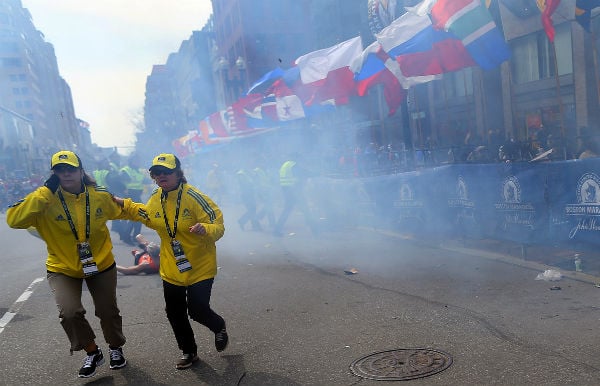The Boston Marathon bombing allows us to draw several interesting conclusions about traditional and alternative media.
This was the first major terrorist act in the US that was carried out in the Age of Social Media.
The first notice about the incident appeared on Twitter literally a few seconds after the first explosion.

After that, the Internet was flooded with photos and videos. Alternative journalism showed that it could ensure an extensive flow of information from the scene only moments after an incident.
According to Topsy.com, on Apr. 15, there were more than 1.2 million tweets using the hashtag #bostonmarathon.

But there’s another interesting factor concerning the impact of the press and social media.
On the same day, several other acts of terrorism occurred elsewhere in the world, including 8 dead in Afghanistan; 1 in Pakistan; 31 in Iraq. On the topic of terrorism, these countries are familiar to all of us. And it’s been a long time since they have held an interest for Internet users.
If we look at tweets on Iraq, for example, we’ll see that they peaked only twice in the last month, one of these being on Apr. 15. Many linked terrorism in Iraq with what happened in Boston, though there were about 100 times fewer references to Iraq.

The other peak occurred on Mar. 19 — about 40,000 tweets. But this also didn’t have anything to do with terrorism or the death of peaceful Iraqis. The US was marking the 10th anniversary of the Iraq War and commemorating its (American) victims.

The same goes for Afghanistan. The sharp increase in references on Twitter is tied to Boston. There’s another peak on Apr. 7 — about 5,000 tweets. On that day, 10 children and 2 women died because of a NATO air strike gone wrong.

And so, it can be seen that though social media and user-generated content allow us to receive information from the right place and at the right time, they don’t describe the world equally and cannot be viewed as a mirror of reality.
Samvel Martirosyan







